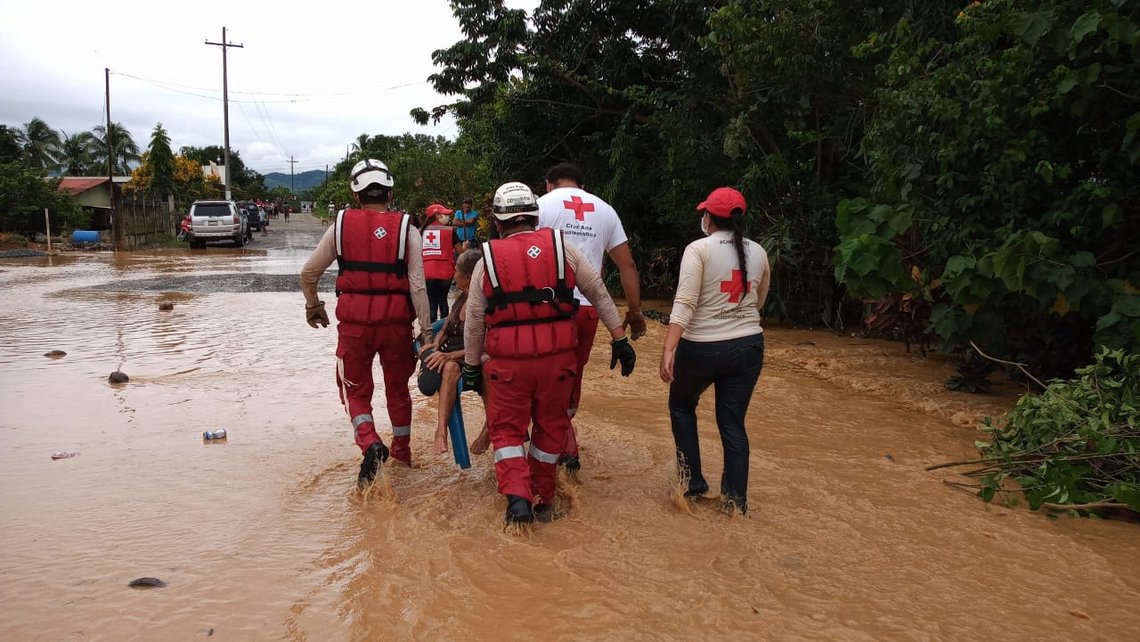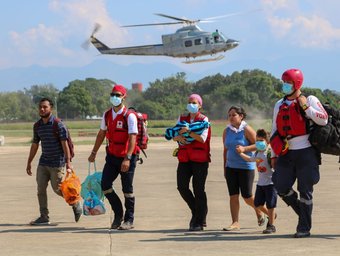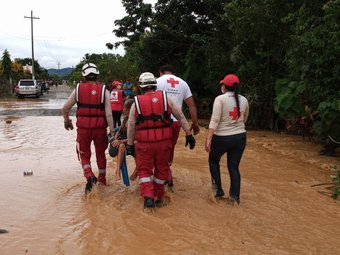Climate changing lives in Central America: voices from the communities
In its 2018 report on global warming, the United Nations Intergovernmental Panel on Climate Change (IPCC) identified extreme hydrometeorological events as one of its top five concerns: something that will make it very difficult to adapt effectively to climate change. But climate change is more than just statistics: it is about families and communities, the millions of lives directly impacted by its effects.
Central America is one of the regions most at risk from extreme events. The impacts from these are already being felt in many countries in the region, particularly in settlements in the ‘dry corridor’. In these two videos, people from Nicaragua and Honduras explain what it is like to live with climate change.

Community experiences in Nicaragua
The region of León has been suffering from the effects of climate change for at least two decades. Long periods of drought and rainstorms destroy harvests, and there is rarely time for recovery. Over the past year, the situation has been exacerbated by the COVID-19 pandemic and an intense cyclone season that saw two devastating hurricanes pass through at the end of 2020.
Video
José María Chévez has volunteered at the Nicaraguan Red Cross branch in León for more than 35 years, and was recently appointed as its president. Here, he shares how his community has been affected by the effects of climate change.
Click on the video to watch his story.
Play Video
Community experiences in Honduras
Hurricanes Eta and Iota, which were category 4 and 5 events respectively, made landfall in Central America in November 2020. Combined, they affected more than 7.5 million people in the region. In Honduras, these extreme events triggered a humanitarian crisis, aggravated by the COVID-19 pandemic, which affected many of the most vulnerable communities. This left hundreds of people dead and millions displaced. It also led to major economic losses, with many homes and crops destroyed
Unfortunately, one year later, the impacts of the disaster are not over.
Video
Dunia Rodríguez, a mother and community leader, currently serves as president of the Cruz de Valencia community board in Valle de Sula, Honduras. She shares how her family have recovered from around 80% of the emotional and physical impacts of Eta and Iota. In this video, you can listen to her story.
Play Video
Anticipatory actions at the local, regional, and global level are a key strategy for saving lives, adapting to climate change and making communities more resilient to the effects of extreme events. You can learn more about anticipatory activities being implemented in the forecast-based financing programme in Honduras (see here) and Guatemala (see here).



